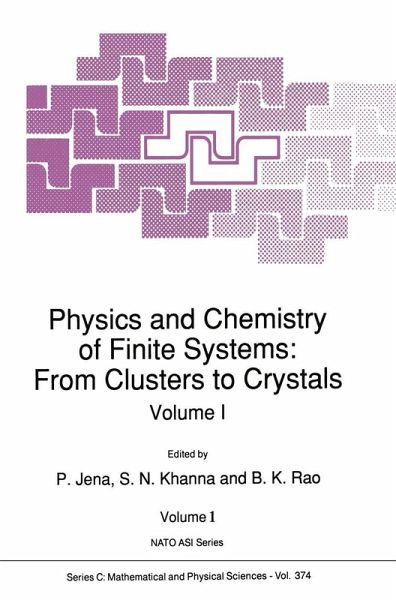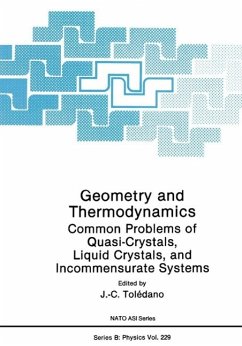
Physics and Chemistry of Finite Systems: From Clusters to Crystals (eBook, PDF)
Versandkostenfrei!
Sofort per Download lieferbar
40,95 €
inkl. MwSt.
Weitere Ausgaben:

PAYBACK Punkte
20 °P sammeln!
Recent innovations in experimental techniques such as molecular and cluster beam epitaxy, supersonic jet expansion, matrix isolation and chemical synthesis are increasingly enabling researchers to produce materials by design and with atomic dimension. These materials constrained by sire, shape, and symmetry range from clusters containing as few as two atoms to nanoscale materials consisting of thousands of atoms. They possess unique structuraI, electronic, magnetic and optical properties that depend strongly on their size and geometry. The availability of these materials raises many fundamenta...
Recent innovations in experimental techniques such as molecular and cluster beam epitaxy, supersonic jet expansion, matrix isolation and chemical synthesis are increasingly enabling researchers to produce materials by design and with atomic dimension. These materials constrained by sire, shape, and symmetry range from clusters containing as few as two atoms to nanoscale materials consisting of thousands of atoms. They possess unique structuraI, electronic, magnetic and optical properties that depend strongly on their size and geometry. The availability of these materials raises many fundamental questions as weIl as technological possibilities. From the academic viewpoint, the most pertinent question concerns the evolution of the atomic and electronic structure of the system as it grows from micro clusters to crystals. At what stage, for example, does the cluster look as if it is a fragment of the corresponding crystal. How do electrons forming bonds in micro-clusters transform to bands in solids? How do the size dependent properties change from discrete quantum conditions, as in clusters, to boundary constrained bulk conditions, as in nanoscale materials, to bulk conditions insensitive to boundaries? How do the criteria of classification have to be changed as one goes from one size domain to another? Potential for high technological applications also seem to be endless. Clusters of otherwise non-magnetic materials exhibit magnetic behavior when constrained by size, shape, and dimension. NanoscaIe metal particles exhibit non-linear opticaI properties and increased mechanical strength. SimiIarly, materials made from nanoscale ceramic particIes possess plastic behavior.
Dieser Download kann aus rechtlichen Gründen nur mit Rechnungsadresse in A, B, BG, CY, CZ, D, DK, EW, E, FIN, F, GR, HR, H, IRL, I, LT, L, LR, M, NL, PL, P, R, S, SLO, SK ausgeliefert werden.












